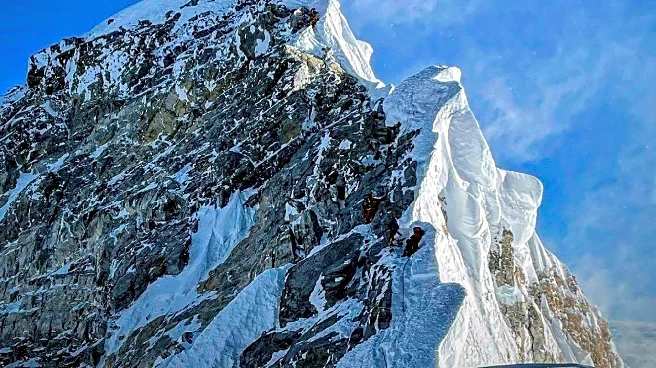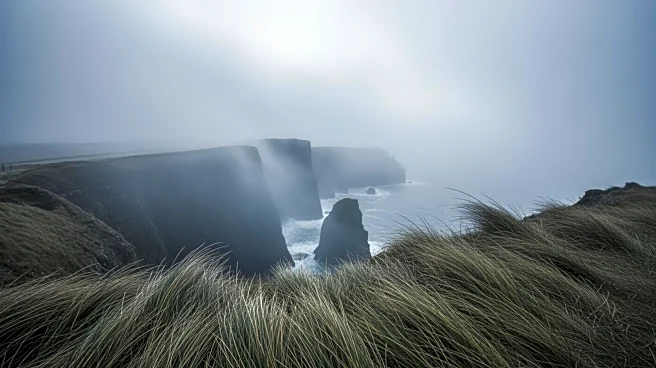What's Happening?
Melissa Arnot Reid, a renowned mountaineer, has released a memoir titled 'Enough: Climbing Toward a True Self on Mount Everest.' The book provides an introspective look at Reid's life, detailing her journey
to becoming the first American woman to summit Everest without supplemental oxygen in 2016. Reid's narrative is marked by honesty, as she shares her personal struggles, including a traumatic childhood, failed relationships, and the challenges faced during her mountaineering career. The memoir begins with Reid's attempt to climb Everest in 2010, offering vivid descriptions of the harsh conditions at high altitudes. Throughout the book, Reid reflects on her experiences as a guide on Everest, including the tragic loss of her friend Chhewang Nima and the 2014 Khumbu Icefall disaster. Her story is one of resilience and self-discovery, highlighting the transformative power of climbing and the importance of overcoming personal obstacles.
Why It's Important?
Reid's memoir is significant as it sheds light on the personal and professional challenges faced by women in the mountaineering world, a field traditionally dominated by men. Her achievement of summiting Everest without supplemental oxygen is a testament to her strength and determination, inspiring others to pursue their goals despite adversity. The book also addresses broader themes of healing and self-worth, resonating with readers who may have faced similar struggles. Reid's candid account of her life offers valuable insights into the psychological and emotional aspects of extreme sports, contributing to a deeper understanding of the motivations and experiences of climbers. Additionally, her involvement in the Juniper Fund, supporting families of high-altitude workers, underscores the importance of community and support in the climbing industry.
What's Next?
Reid's memoir may prompt further discussions on the representation and recognition of women in mountaineering, encouraging more female climbers to share their stories. As readers engage with her narrative, there may be increased interest in the psychological aspects of climbing and the impact of personal experiences on professional achievements. The book could also inspire initiatives to support climbers and their families, similar to the Juniper Fund, highlighting the need for safety and support in high-risk environments. Reid's story may lead to greater awareness and appreciation of the challenges faced by climbers, fostering a more inclusive and supportive community.
Beyond the Headlines
Reid's memoir delves into the ethical and cultural dimensions of mountaineering, exploring the complex relationships between climbers and local communities. Her experiences highlight the importance of respecting cultural traditions and the role of Sherpas in ensuring the safety and success of expeditions. The book also touches on the psychological impact of high-altitude climbing, offering insights into the mental resilience required to overcome physical and emotional challenges. Reid's story may contribute to a broader understanding of the cultural and ethical considerations in adventure sports, encouraging climbers to approach their pursuits with greater awareness and sensitivity.









